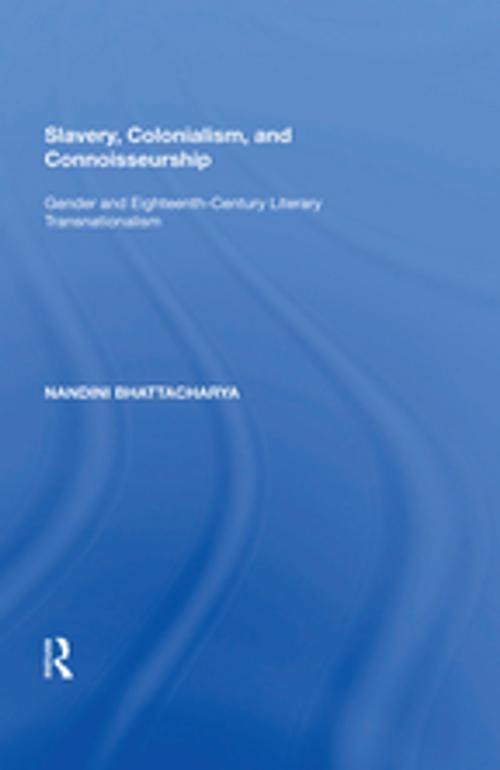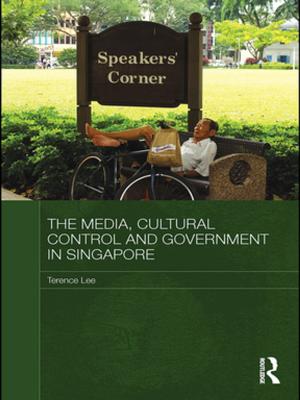Slavery, Colonialism and Connoisseurship
Gender and Eighteenth-Century Literary Transnationalism
Fiction & Literature, Literary Theory & Criticism| Author: | Nandini Bhattacharya | ISBN: | 9781351148948 |
| Publisher: | Taylor and Francis | Publication: | November 28, 2017 |
| Imprint: | Routledge | Language: | English |
| Author: | Nandini Bhattacharya |
| ISBN: | 9781351148948 |
| Publisher: | Taylor and Francis |
| Publication: | November 28, 2017 |
| Imprint: | Routledge |
| Language: | English |
Colonization, slavery, traffic in women, and connoisseurship seem to have particularly captured the imaginations of circumatlantic writers of the later eighteenth century. In this book, Nandini Bhattacharya examines the works of such writers as Richard Brinsley Sheridan, George Colman Jr., James Cobb and Phillis Wheatley, who redefined ideas about Value and Taste. Writers re-presented the ethical debate on Value and trade through aesthetic metaphors and discourse, thus disguising the distasteful nature of the ownership and exchange of human beings and mitigating the guilt associated with that traffic. Bhattacharya explores the circumatlantic redefinition of Taste and Value as cultural and moral concepts in gender and racial discourses in slave-owning, colonizing, and connoisseurial Britain, and demonstrates how Value and aesthetics were redefined in late eighteenth-century circumatlantic discourses with particular focus on the language of slavery, trade and connoisseurship. She also delineates the workings of transnational consciousness and experience of race, class, gender, slavery, colonialism and connoisseurship in the late eighteenth-century circumatlantic rim. Throughout the study, Bhattacharya rereads late eighteenth-century British literature as a stage for the articulation of theories of difference and domination.
Colonization, slavery, traffic in women, and connoisseurship seem to have particularly captured the imaginations of circumatlantic writers of the later eighteenth century. In this book, Nandini Bhattacharya examines the works of such writers as Richard Brinsley Sheridan, George Colman Jr., James Cobb and Phillis Wheatley, who redefined ideas about Value and Taste. Writers re-presented the ethical debate on Value and trade through aesthetic metaphors and discourse, thus disguising the distasteful nature of the ownership and exchange of human beings and mitigating the guilt associated with that traffic. Bhattacharya explores the circumatlantic redefinition of Taste and Value as cultural and moral concepts in gender and racial discourses in slave-owning, colonizing, and connoisseurial Britain, and demonstrates how Value and aesthetics were redefined in late eighteenth-century circumatlantic discourses with particular focus on the language of slavery, trade and connoisseurship. She also delineates the workings of transnational consciousness and experience of race, class, gender, slavery, colonialism and connoisseurship in the late eighteenth-century circumatlantic rim. Throughout the study, Bhattacharya rereads late eighteenth-century British literature as a stage for the articulation of theories of difference and domination.















